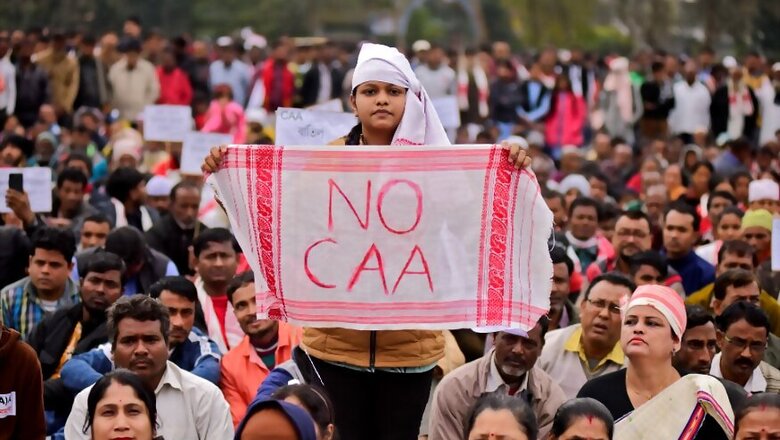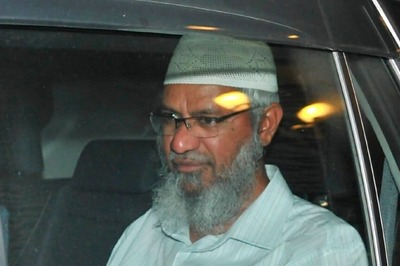
views
New Delhi: Even as protests continue over the Citizenship (Amendment) Act (CAA), the Centre on Friday announced the enforcement of the contentious law.
In a gazette notification, the Union Home Ministry said the Act under which non-Muslim refugees from Pakistan, Bangladesh and Afghanistan will be given Indian citizenship will come into force from January 10.
"In exercise of the powers conferred by sub-section (2) of the section 1 of the Citizenship (Amendment) Act, 2019 (47 of 2019), the Central government hereby appoints the 10th day of January, 2020, as the date on which the provisions of the said Act shall come into force," the notification said.
The CAA was passed by the Parliament on December 11. The Home Ministry, however, is yet to frame the rules for the Act.
According to the CAA, members of Hindu, Sikh, Buddhist, Jain, Parsi and Christian communities who have migrated from Pakistan, Bangladesh and Afghanistan till December 31, 2014, facing religious persecution there will not be treated as illegal immigrants but given Indian citizenship.
Widespread protests have been witnessed in several states since Parliament cleared the law, with petitions being lodged in the Supreme Court challenging the legislation.
Legal challenges ahead
The Supreme Court on Friday sought stands of various petitioners on a plea by the Centre for the transfer of their petitions from various high courts to the apex court. Notices were issued to all petitioners seeking their replies. The matter has been scheduled for further hearing on January 22 along with a slew of other anti-CAA petitions, already pending before the apex court.
A number of prominent Muslim organisations on Friday also demanded the revocation of the CAA. These included Jamiat Ulema-e-Hind, Darul Uloom Deoband, representatives of Jamaat Islami Hind, Markazi Jamiat-e-Ahle Hadees, All India MilliCouncil, All India Muslim Majlis-e Mushawarat, and prominent leaders from other parts of the country.
The meeting took stock of the situation prevailing in the country and deliberated upon the CAA, while reviewing the "ongoing movement and struggle" against the controversial law in detail, a statement issued by the Jamiat said.
"The amended citizenship law is not only anti-constitutional but it also violates the pluralistic character of the country. This law discriminates against people on the basis of their religion and directly contradicts fundamental rights enshrined in the Articles, 14, 15 and 21 in the Constitution," a resolution said, adding that the CAA also contradicts the Preamble to the Constitution.
Meanwhile, Friday witnessed anti-CAA demonstrations in several states, including in Tamil Nadu, Andhra Pradesh and West Bengal. The agitation at Delhi’s Shaheen Bagh, where thousands of women and children are staging an indefinite sit-in against the legislation, also continued. The Delhi High Court also refused to entertain a plea seeking directions to remove the demonstrators at Shaheen Bagh in order to clear road blockages causing traffic congestions along the route.
(With inputs from agencies)


















Comments
0 comment